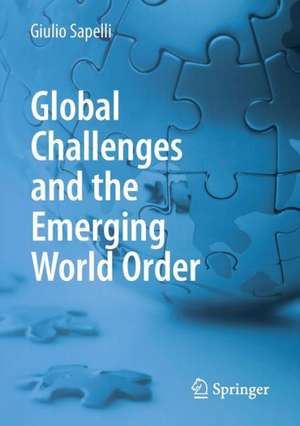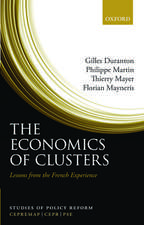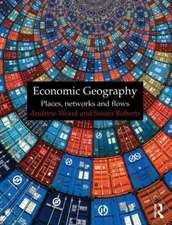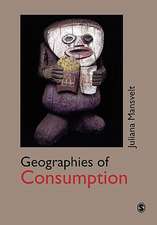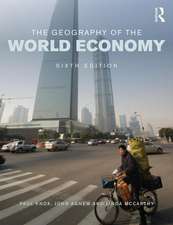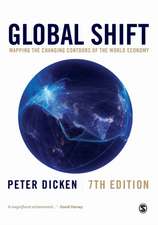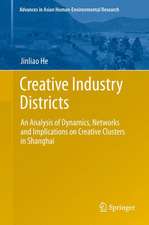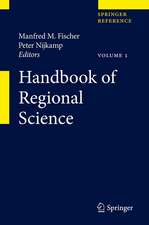Global Challenges and the Emerging World Order
Autor Giulio Sapellien Limba Engleză Paperback – 5 mai 2015
Preț: 173.32 lei
Nou
Puncte Express: 260
Preț estimativ în valută:
33.17€ • 34.43$ • 27.66£
33.17€ • 34.43$ • 27.66£
Carte disponibilă
Livrare economică 01-15 martie
Preluare comenzi: 021 569.72.76
Specificații
ISBN-13: 9783319156231
ISBN-10: 3319156233
Pagini: 79
Ilustrații: IX, 79 p.
Dimensiuni: 148 x 210 x 7 mm
Greutate: 0.13 kg
Ediția:2015
Editura: Springer International Publishing
Colecția Springer
Locul publicării:Cham, Switzerland
ISBN-10: 3319156233
Pagini: 79
Ilustrații: IX, 79 p.
Dimensiuni: 148 x 210 x 7 mm
Greutate: 0.13 kg
Ediția:2015
Editura: Springer International Publishing
Colecția Springer
Locul publicării:Cham, Switzerland
Public țintă
Popular/generalCuprins
Acknowledgements.- The terrible August 2013.- The start of the Mediterranean crisis.- The world’s economic crisis.- The chickens have come home to roost.- The old and new convergence.- Responding to strategic divergence.- Fossil hydrocarbons and the fragmentation of growth.- The future will be African.- Emerging from the crisis in Europe: changing Europe.
Notă biografică
Giulio Sapelli is Full Professor of Economic History at the University of Milan. He has previously taught at the Ecole des Hautes Etudes en Sciences Sociales, Paris, the University of Buenos Aires, the London School of Economics and Political Science and the Autonomous University of Barcelona. Prof. Sapelli has published very extensively on a wide range of topics, including the energy industry and management, market pathologies and the need for institutional, organisational and ethical transparency, territorial socioeconomic systems and anthropology and economics. He was one of the founders of the journal Industrial and Corporate Change (Oxford University Press) and is a member of the Editorial Advisory Committee for Modern Italy and the International Academic Board of the Journal of Southern Europe and the Balkans. Prof. Sapelli has been a member of the Boards of eni and Unicredit Group as independent director and President of M.E.T.A. s.pa.
Textul de pe ultima copertă
This book offers a fascinating overview of the challenges posed by the world’s new geostrategic order and likely future directions. It opens with an unconventional view of the Arab Spring, identifying its origins in the relative US withdrawal from the Middle East caused by both the need for military disengagement for economic reasons and the discovery of shale gas and tight oil in the heart of the North American continent. The rise in the geostrategic importance of Putin’s Russia is explored in this context. The implications of the worldwide economic crisis are analyzed in depth: the author’s interpretation is that the world is entering a phase of unstable growth generated by hyperfinancialization and deflation. Against this background, the book explores the US attempt to trigger growth through the Transatlantic Trade and Investment Partnership, the impact of the Trans-Pacific Partnership (based on the US-Australia military alliance) in restraining China’s advance, and the potential for Africa to become the driver of the world’s economic future if it can resist Chinese penetration and continue the nation-building process.
Caracteristici
Explains the origins and implications of the Arab Spring Analyzes the global economic crisis and its impact on the geostrategic order Examines the potential effects of the Transatlantic Trade and Investment Partnership and the Trans-Pacific Partnership Highlights the potential of Africa to drive the world’s economic future Includes supplementary material: sn.pub/extras
